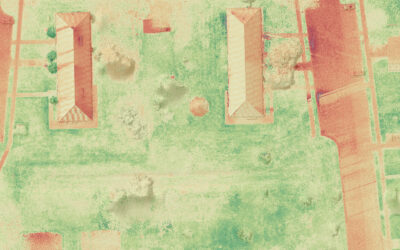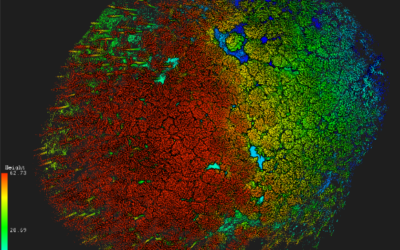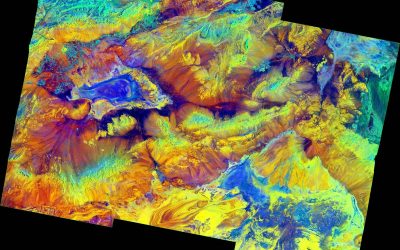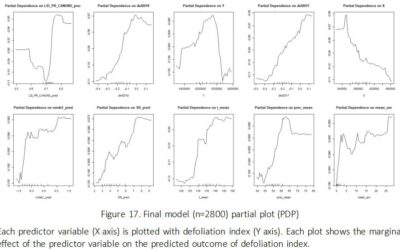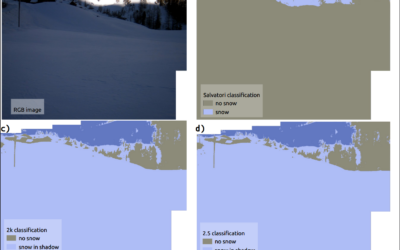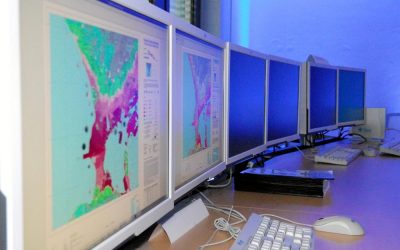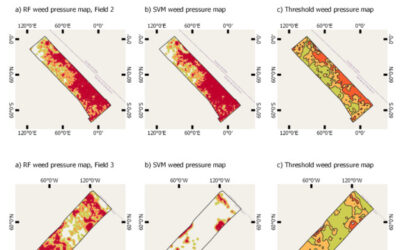Aim
In this course we will learn the alternative image analysis paradigm of object-based image classification. Image objects are areas in images which consist of pixels from the same land-cover class (e.g. buildings, water surfaces, vegetation) and allow the application of additional image classification methods in comparison to pure pixel-based methods and the integration of multi-modal date (e.g. vector data).
Content
In the course we will use satellite images and high resolution aerial images in combination with vector data and analyze various image classification methods (nearest neighbor -> random forests -> deep learning) to extract relevant information from the images.
We will use the software “eCognition”.
The course will be held on 3 days in Würzburg plus an introductory lecture which is being held online.
Session 1: getting to know to image objects and eConition software, basic classification methods
Session 2: advanced classification (Machine Learning)
Session 3: Deep Learning
Coding
Software
Techniques
Content
General Course News and Updates
internship, inno lab and MSc idea presentation
On Monday, 30th of May, from 10am onwards, we will have the following presentations: Ása Dögg (Inno-lab): "Potential of Sentinel-1 data for research and monitoring in Tröllaskagi peninsula, Iceland - Snow cover mapping using S-1 time series."Supervisors: Tobias...
Internship and Inno Lab presentations
On Friday 20th of May at 9am we will have the following internship and inno lab presentations: Andrea Cardenas (Internship at DLR): “Data analysis of the refugee crisis in West Africa and definition of test sites in NRW – Germany”supervisor: Martin Muehlbauer Ása Dögg...
EAGLE application in 2022
We received again more than 200 applicants from all over the world. In total applicants from 42 different countries applied to our international Earth Observation M.Sc. program, covering countries such as Hungary, Morocco, Malaysia, Kenya, Nepal or Columbia. We are...
EAGLE application deadline 2022
Our application deadline for 2022 is approaching. If you want to study applied Earth Observation and learn about a variety of remote sensing sensors and methods as well as about fields of applications, submit your application at the latest on May 15th. Accepted...
MSc defense by Haiyin Ye
On Friday 20th of May at 9am Haiyin will present her M.Sc. thesis "Monitoring Gypsy Moth Outbreak Using Sentinel-1 and Sentinel-2 Data". From the abstract: "Gypsy moth Lymantria dispar (L.) is a serious pest in deciduous forests, the larvae of which can feed on a...
inno lab and MSc defense Jakob Wachter
this Friday, 22nd of April, at 9am we will have one inno lab and one M.Sc. defense, both by Jakob Wachter. inno lab: "Assessment of climate-induced drought impact on crop types in bavaria" (Tobias Ullmann) M.Sc. defense: "Potential of webcam Imagery as reference data...
Inno lab and MSc idea presentation
On Friday 8th of April from 9am onwards we will have the following EAGLE presentations: "Assessment of open-source street-level imagery for building classification in Lima, Peru" by Larissa Gorzawski (Inno lab supervised by Hannes Taubenböck and Christian Geiß)...
MSc idea and inno lab presentations
On Friday 11th of March from 10am onwards the following students will introduce their MSc idea or report on their innovation laboratory: Kemeng Liu (MSc idea): "Mapping Spatial-Temporal Developments of Coastal Aquaculture" supervised by Tobias Ullmann Antonio...
MSc defense by Sofia Garcia
On Friday, March 11th at 9am Sofia will present her M.Sc. thesis "Estimating socioeconomic variables in Bolivia using satellite-based nighttime light images and electricity consumption data". From the abstract: "The lack of up-to-date data on socio-economic parameters...
MSc thesis defense by Nestor Gualsaqui
On March 8th at 10:30 Nestor will present his M.Sc. thesis "Pre-crop emergence weed mapping using high satellite imagery". From the abstract: "During the last decades, the growth of the world population has been increasing and weather fluctuations around the world...

